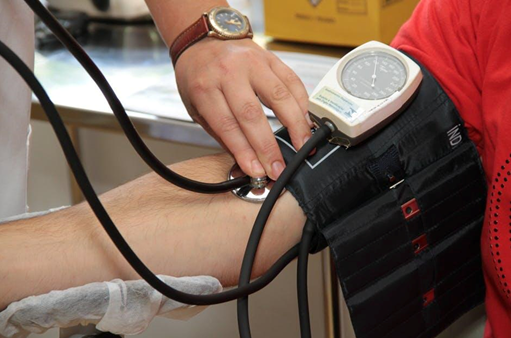As we age, maintaining good eye health becomes increasingly important. One often-overlooked factor affecting vision is blood pressure. High blood pressure (hypertension) and, to a lesser extent, low blood pressure (hypotension) can lead to serious eye issues if left unmanaged.
For seniors, understanding how blood pressure impacts the eyes-and knowing what symptoms to watch for-can be critical in preserving vision and overall health. Read on.
How Blood Pressure Affects the Eyes
Blood pressure directly influences the health of the blood vessels in the eyes. When blood pressure is too high, it can damage the delicate blood vessels in the retina-the light-sensitive layer at the back of the eye. This condition, known as hypertensive retinopathy, may not produce noticeable symptoms in the early stages, but it can eventually lead to vision loss.
In more severe cases, high blood pressure can contribute to optic nerve damage and increase the risk of retinal vein occlusion, a type of eye stroke that blocks blood flow. Chronically high blood pressure also raises the risk of age-related macular degeneration (AMD) and glaucoma, both of which are leading causes of vision loss in older adults.
Conversely, low blood pressure can reduce blood flow to the optic nerve, resulting in:
- blurry vision
- lightheadedness
- even fainting spells
Though less common, these symptoms should not be ignored.
Warning Signs to Watch For
Many blood pressure-related eye conditions develop silently. However, seniors should be alert to the following warning signs:
- Blurred or double vision
- Sudden vision loss in one or both eyes
- Eye pain or pressure
- Frequent headaches, especially behind the eyes
- Seeing floaters or flashing lights
- Redness or swelling in or around the eyes
If any of these symptoms appear, it’s essential to seek prompt medical attention. Sudden vision changes may indicate a serious problem requiring immediate care.
Eye Exams and Blood Pressure Monitoring
Routine eye exams play a vital role in detecting early signs of damage caused by abnormal blood pressure. During a comprehensive eye exam, an eye doctor can observe the health of the retinal blood vessels and detect any early changes, even before symptoms arise.
Seniors should also monitor their blood pressure regularly. Home blood pressure monitors are affordable and easy to use. Keeping blood pressure within a healthy range (typically around 120/80 mmHg) helps protect the eyes as well as:
- the heart
- brain
- kidneys
Also, living in a facility can be advantageous because it offers services to identify senior eye symptoms from hypertension.
Steps to Protect Your Vision
To keep your eyes healthy, it’s important to manage your blood pressure through a balanced lifestyle. Follow your doctor’s advice and take any prescribed medications consistently. Eating healthy foods like fruits, vegetables, and foods rich in omega-3 fatty acids can also support eye health.
Try to stay active by including regular physical activity in your daily routine. Avoid smoking, as it can harm both your eyes and your blood vessels.
Limiting alcohol and reducing your salt intake can also help keep your blood pressure in check. Finally, drink plenty of water to stay hydrated and avoid dehydration, which can affect your overall health, including your eyes.
Prevent Any Blood Pressure-related Eye Issues for Seniors
Eye health and blood pressure are closely connected, especially for seniors. While many blood pressure-related eye problems can be prevented or managed with early detection, they often progress without symptoms. Regular check-ups, awareness of warning signs, and maintaining a healthy lifestyle are key to safeguarding vision well into the golden years.
If you want to read more articles, visit our blog.
